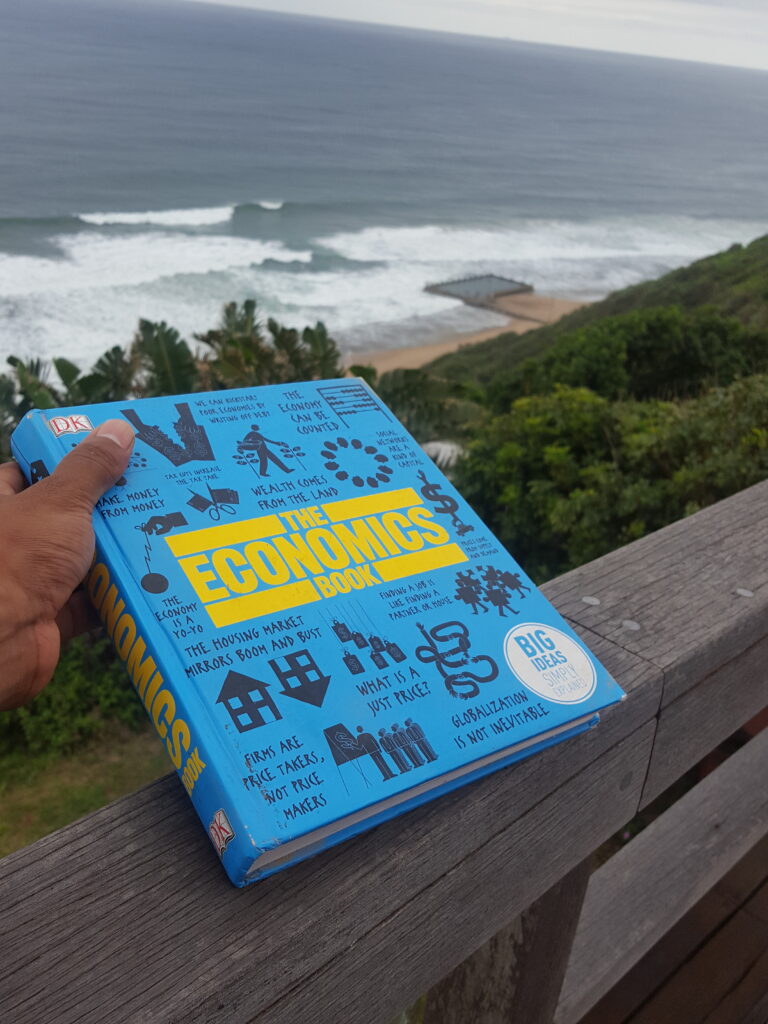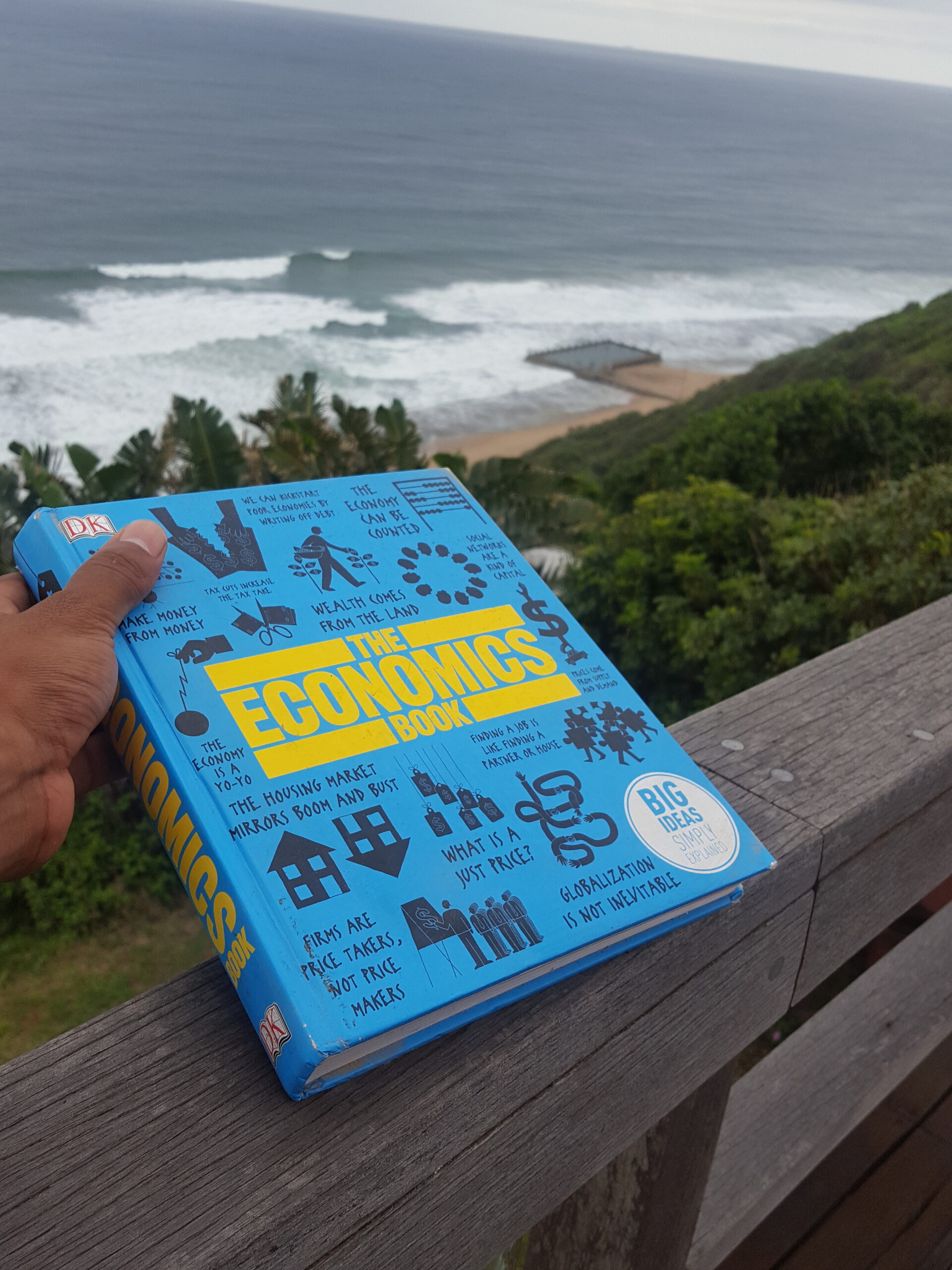
Reading The Economics Book by DK has been an intriguing journey into the world of economics, especially since it features some of my favorite economists—Ludwig von Mises, Milton Friedman, Friedrich Hayek, Joseph Stiglitz, and Adam Smith. The book’s format, with its illustrations and concise blurbs, presents complex economic ideas in a way that’s engaging without being overwhelming. It’s perfect for sparking curiosity rather than diving too deep into complex theories.
One of the things I enjoyed most is how it highlights the evolution of economies, from simple bartering systems to the incredibly intricate and global systems we see today. Back when we were primarily pastoral or nomadic, trade was simple—goods for goods, person to person. Today, that basic principle of exchange has evolved into a much more complex mechanism, with money acting as the lubricant that keeps the economy running. Even though money is fiat—essentially just a piece of paper or a digital number—it holds immense power. The circulation of money, despite its abstract nature, drives everything from local transactions to the shaping of entire civilizations.
It’s wild when you think about how economics as a field tries to condense and measure something so complicated. At its core, it’s a social science, and while we can be confident in our economic models and ideas, there’s always room for error. What works in one context might not work in another. For instance, Singapore is an example of an economy that doesn’t entirely fit into traditional models like laissez-faire capitalism. The government owns a significant portion of the country’s large corporations, yet Singapore remains one of the most successful economies globally. It goes against some of the free-market principles we often hear about, but it works for them. This just shows how diverse economic systems can be, and no single model explains everything perfectly.
The book didn’t teach me everything there is to know about economics or the specific theories of each economist—it’s not that kind of book. Instead, it’s encouraged me to be more curious about what these great economic thinkers have said and their interpretations of how economies function. I haven’t studied every economist in the book in depth, and I wouldn’t be able to recite their theories from memory. What the book has done is fuel my desire to learn more, to explore their philosophies, and to understand the importance of economics in my own life. After all, economics is fundamentally about one of the most important scarce resources: money.
What makes The Economics Book such a light and entertaining read is how it combines short, easy-to-digest explanations with bright, engaging illustrations. The visuals help bring the concepts to life, especially for someone like me who’s a visual learner. It’s not often you find an economics book that manages to explain complicated ideas like supply and demand, inflation, or Keynesian economics in such a simple and visually appealing way. The illustrations help clarify concepts that could otherwise feel abstract or confusing, making the learning experience both fun and memorable.
I’ve always believed that I can’t have what I don’t understand, and money is no exception. If I don’t pay attention to it, study it, and understand how it moves and works, I’ll never have any of it. That’s why this book, even though it’s a light read, is so valuable to me. It’s not about mastering every economic theory but about igniting curiosity and encouraging further exploration into how money shapes our world.
What I really love is that The Economics Book is perfect to have on a coffee table. It’s the kind of book you can pick up whenever you want to dive into a new idea, without feeling overwhelmed. It’s accessible and filled with enough intriguing insights to keep you curious about economics, whether you’re just starting out or have some knowledge of the topic. This book isn’t about learning the most complex theories—it’s about staying engaged and curious about the world of economics, which is, after all, one of the most important forces shaping our lives.
